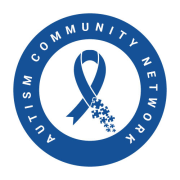

Author(s): Pankaj Koirala*
Despite the potentially important roles of diet and nutrition to overcome symptoms associated with Autism Spectrum Disorder (ASD), the evidence to support these roles is widely perceived by the public and health professionals as being inconsistent. Food selectivity may further result in nutritional deficiency and the impact could be severe. Therefore, adequate nutrition should be provided to complement nutritional deficits in children with ASD. The most documented GI symptoms include chronic diarrhea, excessive gas, abdominal discomfort and distension, constipation, gastro-esophageal reflux, and food intolerances. Because of these symptoms, dietary intake and nutrient adequacy was found to be challenging. In this review, we present the nutritional deficiency and possible dietary solution to minimize ASD associated symptoms. The interaction of dietary nutrient during digestion and absorption with the physiological and metabolic functions, along with proper supplementation of nutrient are also discussed. Positive results of several studies suggest that a comprehensive nutritional and dietary intervention is effective at improving nutritional status, non-verbal IQ, autism symptoms, and other symptoms in most individuals with ASD.